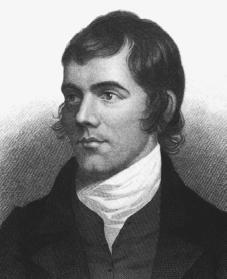
Auld Lang Syne
Should auld acquaintance be forgot,
and never brought to mind?
Should auld acquaintance be forgot,
and auld lang syne*?
- CHORUS:
- For auld lang syne, my jo,
for auld lang syne,
we’ll tak’ a cup o’ kindness yet,
for auld lang syne.
And surely ye’ll be your pint-stoup!
and surely I’ll be mine!
And we’ll tak’ a cup o’ kindness yet,
for auld lang syne.
- CHORUS
We twa hae run about the braes,
and pou’d the gowans fine;
But we’ve wander’d mony a weary fit,
sin’ auld lang syne.
- CHORUS
We twa hae paidl’d in the burn,
frae morning sun till dine;
But seas between us braid hae roar’d
sin’ auld lang syne.
- CHORUS
And there’s a hand, my trusty fiere!
and gie’s a hand o’ thine!
And we’ll tak’ a right gude-willie waught,
for auld lang syne.
- CHORUS
About
“Auld Lang Syne” is a Scots poem written by Robert Burns in 1788 and set to the tune of a traditional folk song. It is well known in many countries, especially in the English-speaking world, its traditional use being to bid farewell to the old year at the stroke of midnight on New Year’s Eve. By extension, it is also sung at funerals, graduations, and as a farewell or ending to other occasions. The international Scouting movement, in many countries, uses it to close jamborees and other functions.
The song’s Scots title may be translated into standard English as “old long since”, or more idiomatically, “long long ago”, “days gone by” or “old times”. Consequently, “For auld lang syne”, as it appears in the first line of the chorus, might be loosely translated as “for (the sake of) old times”.
The phrase “Auld Lang Syne” is also used in similar poems by Robert Ayton (1570–1638), Allan Ramsay (1686–1757), and James Watson (1711) as well as older folk songs predating Burns. Matthew Fitt uses the phrase “In the days of auld lang syne” as the equivalent of “Once upon a time…” in his retelling of fairy tales in the Scots language.

